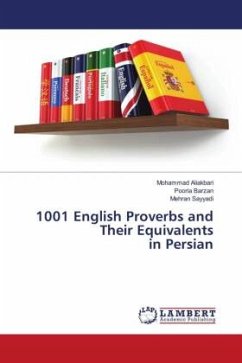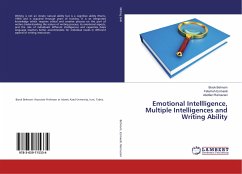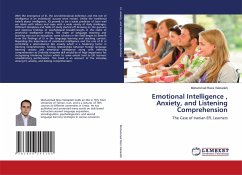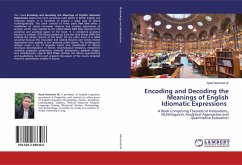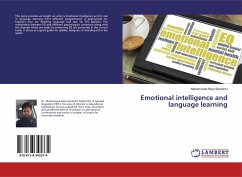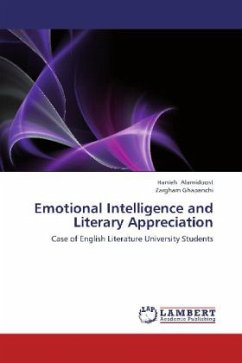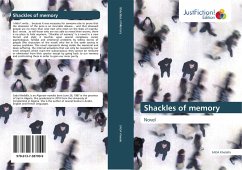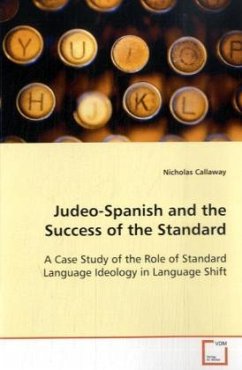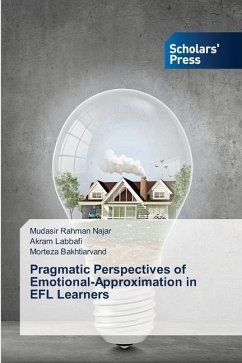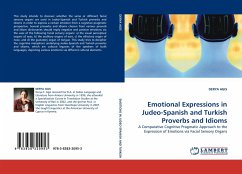
Emotional Expressions in Judeo-Spanish and Turkish Proverbs and Idioms
A Comparative Cognitive Pragmatic Approach to the Expression of Emotions via Facial Sensory Organs
Versandkostenfrei!
Versandfertig in 6-10 Tagen
39,99 €
inkl. MwSt.

PAYBACK Punkte
20 °P sammeln!
This study intends to discover whether the same or different facial sensory organs are used in Judeo-Spanish and Turkish proverbs and idioms in order to express a certain emotion from a cognitive pragmatic perspective. Several proverbs and idioms chosen from various proverb and idiom dictionaries should imply negative and positive emotions via the uses of the following facial sensory organs: a) the visual perceptual organs of eyes, b) the auditory organs of ears, c) the olfactory organ of nose, and d) the gustatory organ of tongue. This study tries to decipher the cognitive metaphors underlyin...
This study intends to discover whether the same or different facial sensory organs are used in Judeo-Spanish and Turkish proverbs and idioms in order to express a certain emotion from a cognitive pragmatic perspective. Several proverbs and idioms chosen from various proverb and idiom dictionaries should imply negative and positive emotions via the uses of the following facial sensory organs: a) the visual perceptual organs of eyes, b) the auditory organs of ears, c) the olfactory organ of nose, and d) the gustatory organ of tongue. This study tries to decipher the cognitive metaphors underlying Judeo-Spanish and Turkish proverbs and idioms, which are cultural legacies of the speakers of both languages, depicting various emotions via different cultural elements.



